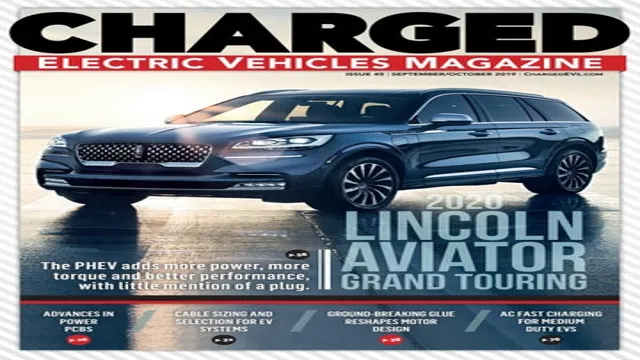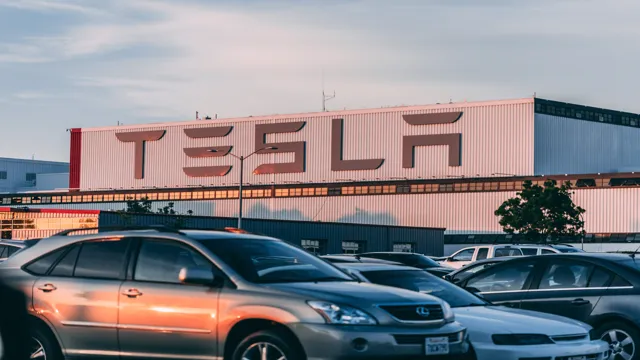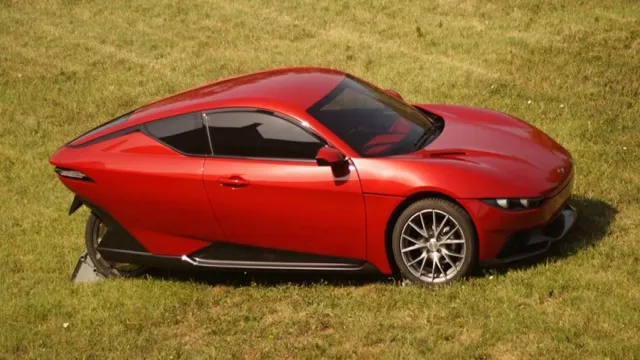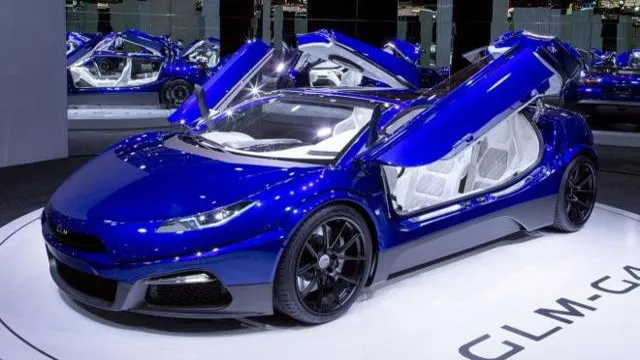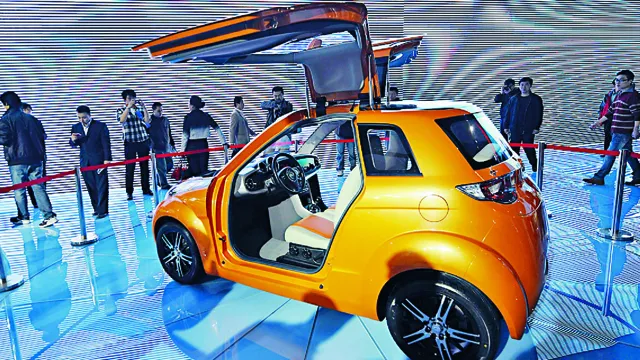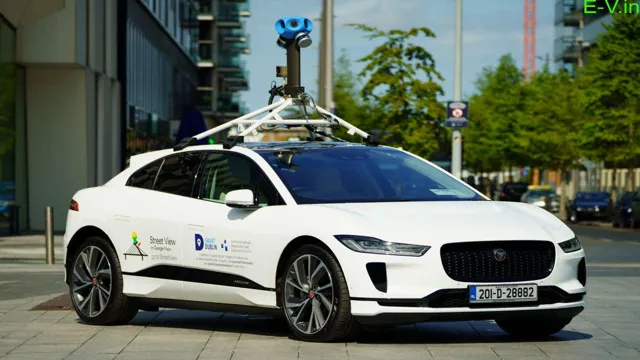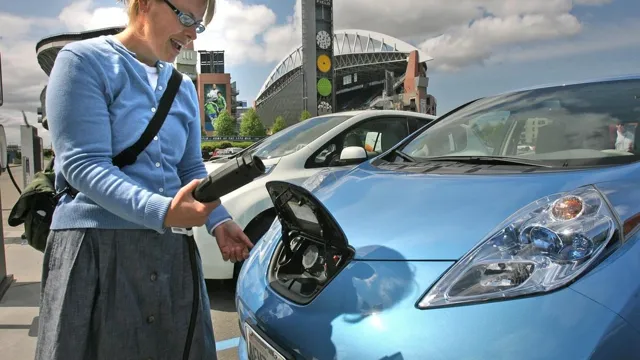Rev up your Newsfeed with Latest Electric Car Insights: Top Articles and Updates
Electric cars have been in the news a lot lately, and for good reason. With more and more people looking to reduce their carbon footprint and move towards a greener future, electric cars have become an increasingly popular choice for those who want to make a positive impact on the environment. From new electric car models to advancements in charging technology, there’s always something new to take note of in the world of electric cars.
Whether you’re a seasoned EV enthusiast or just curious about this exciting technology, there are plenty of electric car news articles out there to keep you up to date on all the latest developments.
1. Latest Electric Car Models
Are you in the market for a new electric car? Then you’re in luck! The latest models hitting the market are designed to offer more range, better performance, and a smoother driving experience than ever before. From the upcoming Tesla Model S Plaid, which promises a 0-60 time of under 2 seconds, to the Ford Mustang Mach-E, which features a sleek, sporty design and up to 300 miles of range on a single charge, there’s no shortage of options for those looking to make the switch to electric. Other models to keep an eye on include the Audi e-tron, which boasts a luxurious interior and cutting-edge driver assistance features, and the Volkswagen ID.
4, which offers a spacious interior and intuitive tech features. Whether you’re looking for speed, style, or comfort, there’s an electric car out there that’s sure to fit your needs. So why not ditch the gas pump and embrace the future of transportation? Keep up with the latest electric car news articles to stay informed on the latest trends.
1.1 Top Electric Car Models of the Year
Looking for the latest electric car models? Look no further! In 2021, automakers have continued to push the boundaries of electric car technology, offering consumers a range of choices that cater to different needs and preferences. The Tesla Model S and Model X have been popular choices for those looking for a luxury electric vehicle, providing a sleek and stylish design and impressive performance. The Ford Mustang Mach-E has also been making waves in the EV community, with its exciting mix of power and economy.
For those looking for a more affordable option, the Nissan Leaf and the Chevy Bolt are great choices that offer quality performance at a lower price point. With so many new electric car models hitting the market, it’s a great time to consider making the switch to electric and join the growing community of eco-conscious drivers.
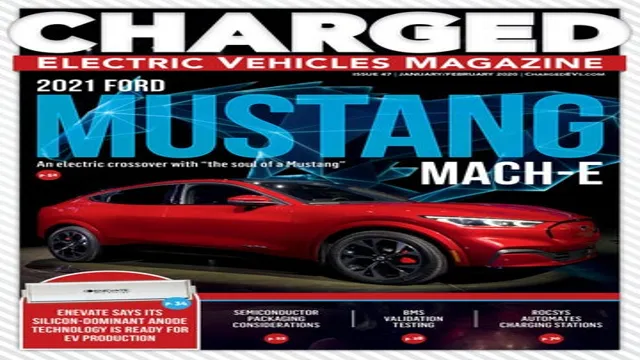
1.2 Comparison of Electric Car Prices and Features
Looking for the latest electric car models? Look no further as we compare the prices and features of the most popular electric vehicles on the market today! The Tesla Model 3 is a top contender, with a starting price of around $38,000 and a range of up to 358 miles on a single charge. Another popular option is the Nissan Leaf, starting at around $32,000, with a smaller range of 150 miles but a more affordable price tag. For those who prioritize luxury, the Audi e-tron is a stylish choice, with a starting price of around $66,000 and a range of up to 222 miles.
Overall, electric cars offer a more eco-friendly and cost-effective option for drivers looking to reduce their carbon footprint and save money on gas. So why not consider making the switch to an electric vehicle?
2. Government Incentives on Electric Cars
Electric car news articles are buzzing with exciting information and updates on the latest government incentives for electric vehicles. Countries around the world are introducing incentives and subsidies to promote the adoption of electric cars, making them more affordable and accessible to consumers. These incentives can include tax credits, rebates, and even free parking and tolls for electric vehicle owners.
Additionally, many governments are investing in charging infrastructure to support the growing demand for electric vehicles. These efforts are helping to reduce emissions and create a more sustainable future. As electric car technology continues to advance, it is expected that more government incentives and policies will be introduced to support their adoption and usage.
So keep an eye out for the latest electric car news articles to stay informed on the latest developments and incentives in this exciting and rapidly changing industry.
2.1 Tax Credits and Rebates
If you’re thinking about purchasing an electric car, it’s essential to know about the tax credits and rebates available, as they can make a significant dent in the cost of the vehicle. Governments around the world understand the environmental benefits of electric cars, and that’s why they offer incentives for individuals to buy them. For instance, in the United States, the federal government offers a tax credit of up to $7,500 for those who purchase eligible electric vehicles.
However, keep in mind that these incentives can vary by location and may change over time. Some states and local governments may also offer their incentives for purchasing electric cars. It’s worth contacting your local officials to see if you qualify for any credits or rebates in your area.
By taking advantage of these incentives, you can reduce your upfront costs and enjoy the benefits of driving an electric car while helping to preserve the environment.
2.2 Government Policies and Support for EVs
One of the biggest advantages of electric cars is the various government incentives and policies in place to promote their use. Governments around the world are offering a range of incentives to encourage consumers to choose electric cars over traditional gasoline vehicles. These incentives may include tax credits, rebates, grants, and other financial benefits.
Some governments are also investing in infrastructure to support electric vehicles, such as more charging stations and parking spaces. Additionally, many countries are setting ambitious targets to reduce emissions and increase the number of electric vehicles on the road. By providing incentives for people to switch to electric cars, governments are helping to reduce greenhouse gas emissions and improve air quality, which benefits everyone.
As technologies improve and demand for electric cars continues to grow, we can expect to see more government policies and support for these vehicles in the future.
3. Environmental Impact of Electric Cars
Electric car news articles often highlight the positive environmental impacts of electric vehicles. In general, electric cars produce fewer emissions than gasoline-powered cars, which results in a reduced carbon footprint. However, the environmental impact of electric cars goes beyond just emissions.
The production and disposal of the batteries required to power electric vehicles can also have negative consequences, including the use of precious metals and minerals, and potential pollution from battery waste. Additionally, the electricity used to power electric cars often comes from non-renewable sources, meaning that the environmental impact of electric cars is heavily dependent on the methods used to generate electricity. Despite these challenges, electric cars still offer a cleaner alternative to traditional cars, and continued innovation in battery technology and renewable energy sources could lead to even greater environmental benefits in the future.
3.1 Green Benefits of Driving an Electric Car
Electric Cars Electric cars have a significantly lower impact on the environment than traditional gas-powered vehicles. This is because traditional cars emit harmful gases that damage the environment and cause air pollution, while electric cars do not emit any harmful gases. The use of electric cars helps reduce greenhouse gas emissions and contributes to combating climate change, making them an eco-friendly choice.
Additionally, the energy used to power electric cars comes from renewable sources, such as solar and wind power, further reducing their environmental impact. Not only are electric cars beneficial for the environment, but they are also more cost-effective in the long term as they require less maintenance and have lower fuel costs. Driving an electric car not only benefits the planet but also saves drivers money and provides a smoother and quieter driving experience.
As the world continues to prioritize sustainability, electric cars are becoming an increasingly popular choice for drivers who want to reduce their carbon footprint without sacrificing convenience and comfort on the road.
3.2 Carbon Emissions Reduction and Air Quality
When it comes to the environmental impact of electric cars, carbon emissions reduction and air quality are two of the most substantial benefits. Electric cars emit far fewer greenhouse gases than traditional gasoline-powered vehicles, which means they contribute less to climate change. Additionally, electric vehicles don’t release pollutants into the air that can harm human health, like nitrogen oxides and particulate matter.
This means that electric cars can improve local air quality, particularly in urban areas where pollution is a significant problem. By driving an electric car, you can make a real difference in reducing your carbon footprint and improving the air we all breathe. It’s a win-win situation that benefits both the planet and the people who live on it.
So why not consider making the switch to an electric car today?
4. Electric Car Batteries
In recent electric car news articles, there has been a lot of talk about the batteries that power these eco-friendly vehicles. After all, the battery is one of the most important components of any electric car, since it dictates how much distance the car can travel on a single charge. In the past, electric car batteries tended to be expensive and limited in terms of range.
However, thanks to advancements in battery technology, electric cars are now able to travel much further than they used to, and their batteries are becoming increasingly affordable. Some experts believe that electric car batteries will continue to improve in the years ahead, making electric cars an even more attractive option for drivers around the world. As more and more people embrace these vehicles, we can expect to see even more exciting developments in the electric car industry.
4.1 Advancements in Battery Technology
Electric Car Batteries Electric car batteries have been evolving ever since the first electric cars came out. The advancements in battery technology have played a significant role in increasing the range and efficiency of electric vehicles. New battery technologies have made electric cars more practical and convenient for daily use.
Lithium-ion batteries are currently the most commonly used batteries in electric cars, but researchers are constantly looking for ways to make batteries better. Now, there are improved lithium-ion batteries with higher energy densities, longer lifespans, and faster charging capabilities. Solid-state battery with solid electrolyte instead of conventional liquid electrolyte providing faster charging and more energy storage.
These new battery technologies have brought the promise of a cleaner, more sustainable future to the world.
4.2 Longevity and Maintenance of Electric Car Batteries
Electric car batteries are a crucial component of electric vehicles, allowing them to operate without gasoline or other fossil fuels. An important consideration for these batteries is their longevity and maintenance, which can impact the overall cost of ownership for electric car owners. Generally speaking, electric car batteries can last for several years, with the average lifespan ranging from 8 to 10 years depending on factors such as usage, temperature, and overall wear and tear.
However, proper maintenance and care can help extend the life of these batteries even further, reducing the need for costly replacements and ensuring that electric cars remain a viable and sustainable transportation option for years to come. Some maintenance tips for electric car batteries include keeping them at the recommended charge levels, avoiding frequent fast charging, and storing them in a cool and dry location when not in use. By taking these steps, electric car owners can help ensure that their vehicles remain in top condition and can continue to deliver reliable and efficient performance for years to come.
Conclusion
After all the buzz surrounding electric cars, it’s clear that they’re not just a passing trend. With advancements in technology and growing concerns about the environment, it’s safe to say that the future of the automotive industry is electric. So, whether you’re a diehard Elon Musk enthusiast or just someone looking to make a positive change, maybe it’s time to trade in your gas guzzler for a sleek and efficient electric car.
Just remember, going electric doesn’t mean sacrificing style or performance. Embrace the future, take a joyride in a Tesla, and let the electric revolution begin!”
FAQs
What are some recent news articles about electric cars?
There are several recent news articles about electric cars. Some popular ones include “Tesla unveils new Model S Plaid electric car with ‘every option’,” “Ford reveals new F-150 Lightning electric pickup truck,” and “Biden administration proposes new incentives for electric vehicle adoption.”
How do electric cars compare to traditional gasoline cars in terms of performance?
Electric cars generally have better acceleration and torque than traditional gasoline cars. They also have lower maintenance costs and emit fewer pollutants.
What is the range for most electric cars on a single charge?
The range for most electric cars on a single charge varies, but typically ranges from 100 to 300 miles.
Are there any downsides to owning an electric car?
There are some downsides to owning an electric car, including the higher upfront cost compared to traditional gasoline cars, the need to recharge the battery, and the limited availability of charging stations in certain areas.

